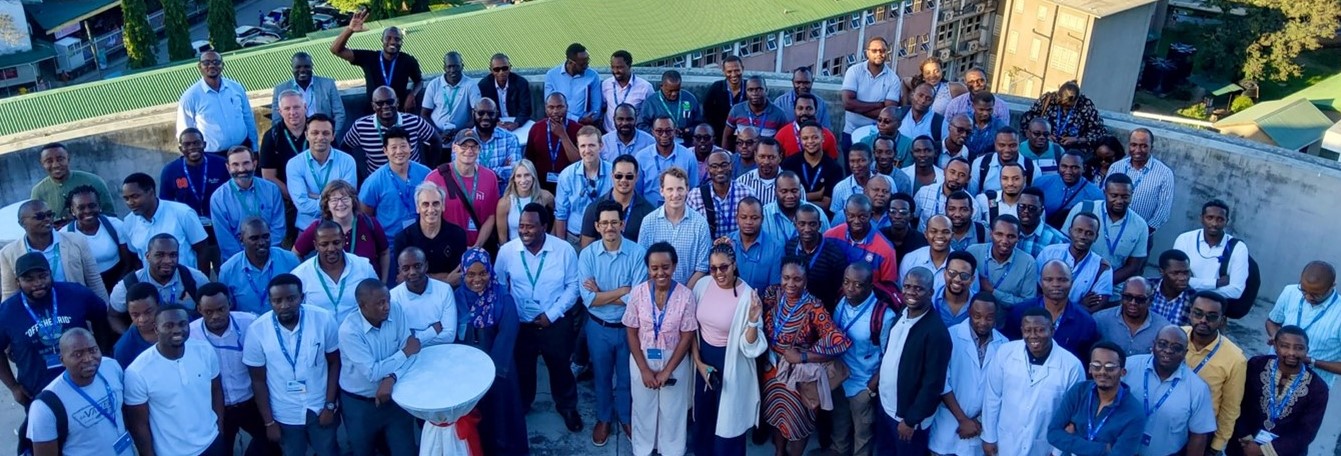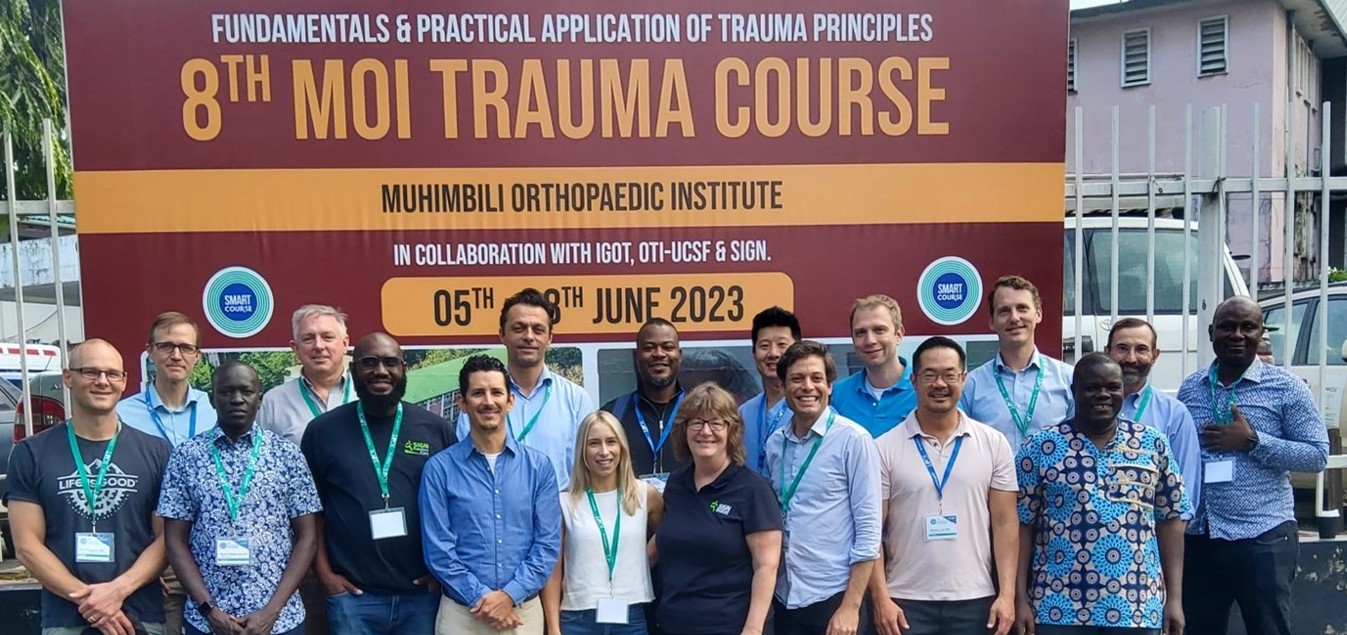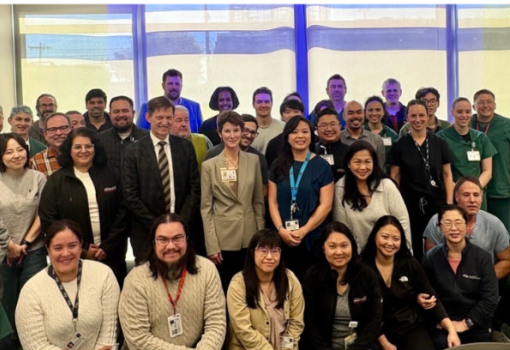After a three-year pause due to the pandemic, the Institute for Global Orthopaedics and Traumatology (IGOT) partnered with SIGN and the Muhimbili Orthopaedic Institute (MOI) to hold the 8th Annual Tanzania SMART Course June 2023.
The course attracted over 160 attendees from 14 countries across Sub-Saharan Africa and the faculty comprised 16 orthopaedic and plastic surgeons from Africa and North America, including 10 SIGN surgeons.
The four-day course covered a variety of topics including fractures of the pelvis, hip, and knee as well as open fracture treatment and soft-tissue flaps.

Pictured above: The 2023 Tanzania SMART Course group
Background
The “Flap Course,” which has been held annually in the US for more than 10 years as a collaboration between SIGN and IGOT at the University of California, San Francisco. In 2013, leadership from MOI expressed interest in hosting a course that would be more accessible to the many surgeons in Africa who were unable to travel for the SIGN conference and “Flap Course”. After the first successful course, it was the combination of teaching fracture treatment and soft-tissue flaps in Tanzania that led to the name “Surgical Management and Reconstructive Training” (SMART). Subsequently, both IGOT and SIGN have partnered with MOI to deliver this course on an annual basis. The course involves a variety of topics and teaching formats, including didactics, case discussions, and hands-on workshops.
In the early years the course was predominantly taught by faculty from North America, but it has evolved to become a multi-disciplinary team of North American and African surgeon-leaders. This year’s course included faculty representing seven countries: Pak Baidoo (Ghana), Kebba Marenah (The Gambia), Daniel Sciuto (Kenya), Mapuor Mading (South Sudan), Joseph Mwanga (Tanzania), Billy Haonga (Tanzania), Felix Mrita (Tanzania), John Ekure (Uganda), Akimu Mageza (Zimbabwe), and Brian Paketh (Zimbabwe).

Picture above: Tanzania SMART Course faculty and course administrators.
SMART Course Impact
The SMART Course model represents a sustainable surgical training program that teaches limb-saving, soft-tissue flap techniques to surgeons in low-and middle-income countries (LMICs). The SMART Courses have been held annually in San Francisco, Tanzania, Nepal, and more recently in Mexico and Cuba.
1100
Each SMART Course saves 1100 patients from amputations every year
1000+
The SMART Course has trained over 1000 surgeons and counting in limb-saving techniques
93%
Success rate in surgery preventing amputation learned from the SMART Course
16,500
Amputations prevented by SMART Course attendees

